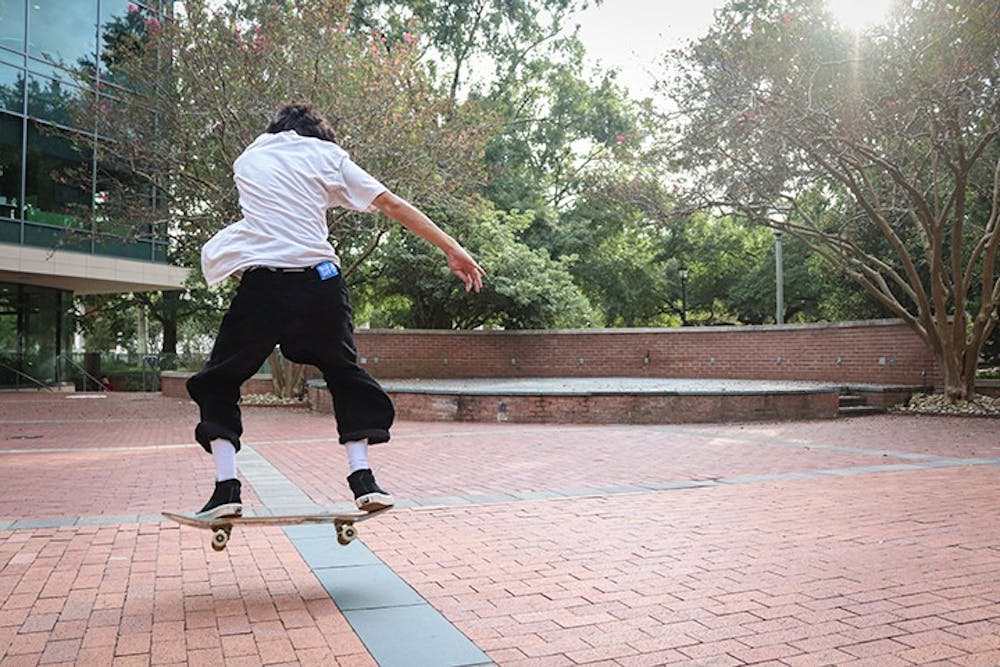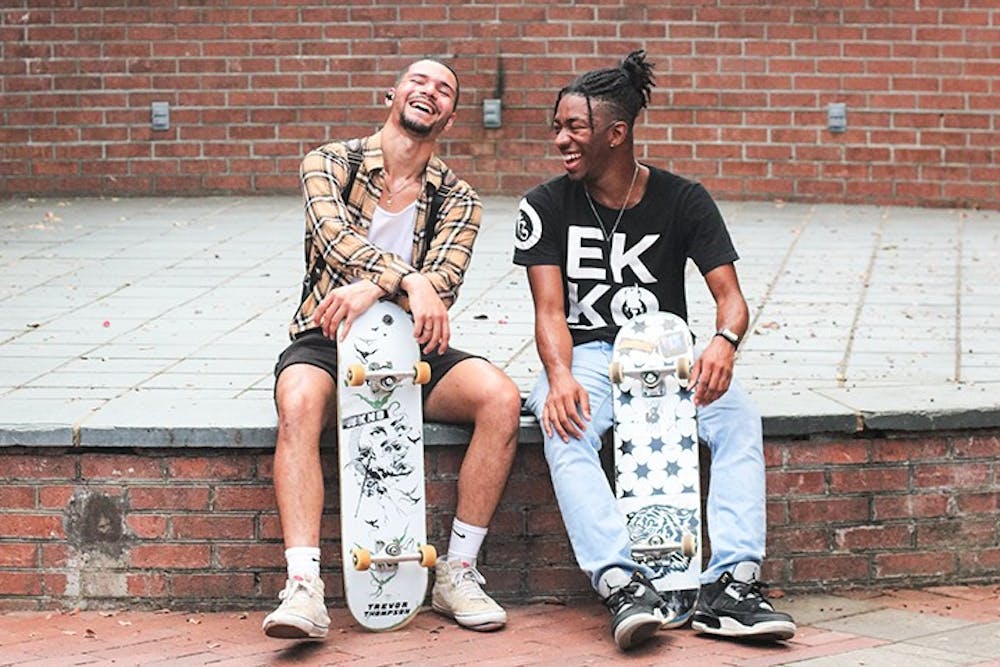The Gamecock Skate Club, an organization of skateboarders on campus, dismantles the misconceptions of skateboarders and promotes community and the mental and physical health of its members through skateboarding.
President Andrew Dhillon, a second-year computer science student, said the group started off as a small, friendly group chat but has now grown into an opportunity.
“Since school has started, there's so many new people out. Every day I'll get a request, and like five different people would like to join Skate Club,” Dhillon said. He said he considers this a feat, as advertisement for the group is primarily word of mouth.
The club was originally formed last year to appease the on-campus police, who would frequently stop the group from performing tricks on the Russell House patio stage, according to Dhillon.
Dhillon said the club is willing to work with campus administration to compromise on times or locations the skaters can practice tricks together, with permission from the school.
Since the inception of the club, the group has evolved into something more for skateboarders on campus. For vice president Ta’Rajay Bowie, a second-year computer engineering student, the motivation for skateboarding in the club is the mental health benefits. He said skateboarding is "like therapy for me.”
“Our whole thing for our skateboarding club is mental health awareness. So, we always look out for each other for mental health and all that," Bowie said.
For people with mental health struggles such as anxiety, depression or anger issues, skateboarding is an activity to de-stress and practice discipline through the focus it takes to learn skateboard tricks, according to Dhillon.
The Gamecock Skate Club also aims to break through the negative stereotypes of how a skater looks or what activities they participate in.
“A lot of people think skaters are a bunch of junkies and vandalizers and stuff like that," Dhillon said. "But the community as a whole, it's a whole bunch of nice people."
Regardless of the group's intentions, the skater community is aware of people's preconceived notions for them, spanning from love to hate, according to Bowie and Dhillon.
Their advice: Pay no mind to the skateboarders whizzing past.
“If you hear somebody coming, do not move. Don't move. Just stay straight where you're going because in our heads, we already calculated how we're going to maneuver around you,” Dhillon said. “When we run into people, it's because they start, like, chickening out, and try to play chicken with us, and look, you're not going to win that chicken.”
Regardless of what outsiders think, Dhillon knows first-hand the generosity of the skateboarding community, seeing seasoned skaters giving rookies spare equipment to start them on their skating journey.
Skateboarder Elijah Peterson, a first-year accounting student, said the skating community exists as "one big, weird family" and is very welcoming.
“It’s the greatest thing ever, because the way the skating community works is like, as long as you have a board, regardless of your experience or anything, everybody accepts you,” Peterson said.
Recently, there’s been more talk of skateboarding in the media due to the addition of the sport in the 2021 Tokyo Summer Olympics and the influence of skating trends on the video app TikTok.
Today, Dhillon said, the picture of the skateboarder has changed from its predominantly white, Tony Hawk-esque roots.
“It’s also filled with a lot of people of color as well," Dhillon said. "Since I started skating, I was like, 'Wow, there's more people that look like me.'"

In a perfect skateboard-oriented world, the club and its members wouldn’t choose to skate outside Russell House. Uneven bricks and holes from the brick's absence leave behind hazards for the skaters, but the terrain of nearby streets and other areas on campus are even worse for the group.
The limited access to skate parks around the Columbia area also poses an issue and restricts the skateboarders of USC further.
With further growth, the club hopes to extend its community reach through service projects. It hopes to one day build and maintain a skatepark of its own near campus or donate necessary items to the homeless population of Columbia, according to Dhillon.

